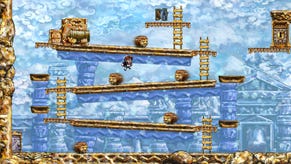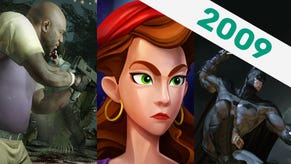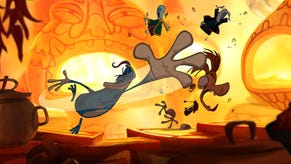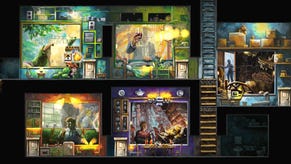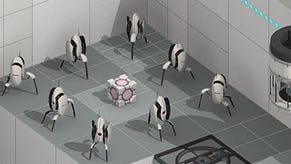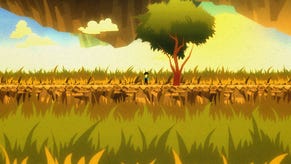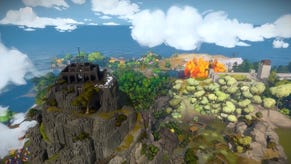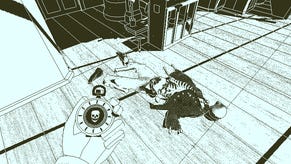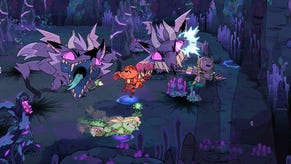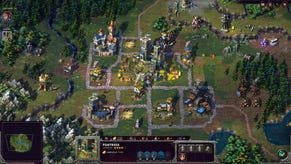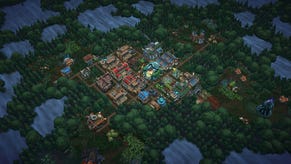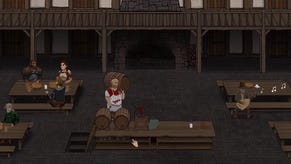Impressions: Braid PC
On its initial release on the 360, Braid was one of the most critically adored, controversial and successful indie games of the year. I'm going to do an impressions post more than a traditional review, because I still haven't finished the bally thing, but there's stuff worth saying with it coming to the PC. The inclusion of a level editor is great. Having to use JoyToKey to play with a non-360 controller less so. But really, what's important is to sort of reset newcomers expectation. The debate has confused things.
You'll have seen this:
What people people missed in the widespread giggles at groundbreaking New Games Journalist Soulja Boy's take on Braid was he totally got Braid.
He got Braid far more than people who - say - got hung up on its plot, as interesting as it is. Braid is fundamentally about the absolute sheer joy in seeing reality re-made before your eyes. The ability to rewind time is the least of it, the first step on increasingly twisted roads. The first time you play is about the joy of discovery. While I'm told some people worked their way through the game, solving each puzzle, I can hardly believe it. I rushed past ones which I couldn't master immediately, pressing on to see whatever Blow had worked out to happen on the next world. Clones of previous selves. Rings of time-distortion like an emo-fied Planetary character. Best of all, turning reality into a clockwork mechanism so heading left or right makes the universe flick along. And when you actually dig into the tunnels, there's a staggering lack of fat in the endeavor. You beat a challenge, you really don't see it again. You may think you do for a second, but Blow's formalist leanings takes great joy in creating a situation that looks almost identical to a previous one - or an iconic one in another game - but how the changes of the rules render it fundamentally different. Perhaps the most impressive thing about Braid is how a game that reinvents it so constantly, with such a radically different play-set, manages to actually teach - and challenge - the gamer so much. It's exquisitely designed.
It's also - to stress the point - incredibly original. Comparisons to Prince of Persia are asinine. Comparisons to XBox-curio Blinx are like claiming Lamarckism should get the credit instead of Darwinism. If it doesn't work, you're just an amusing historical footnote.
My biggest problem with Braid aren't really problems at all - they're preferences. They're the reason why I voted for World of Goo ahead of Braid in the Eurogamer end of year awards. It's a clock-work perfect game, and that leaves the game feeling somewhat stiff. There's really just one solution to a problem. You look and experiment with this intricate crystal structure until you find it. World of Goo is about physicality, about wrestling with this object and its slight unpredictableness the entire point. Braid is the opposite. Braid is a game about ideas. It is a platform game as pure thought. That leaves it feeling a trifle cold. It's not a game which allows you to really play. Unless you follow the Soulja route and get stoned, which isn't the worst of ideas. Better than dropping acid and playing through System Shock 2, anyway.
God, okay - let's go nitpicks. The puzzles where a key shatters on a door for a reason I've never worked out. I've got past them without ever knowing why the key shattered, which is a hole in the game's pure-puzzle remit. In World of Goo, accidents were part of its chaotic design. In the pure-thought Braid, accidental elements annoy. It's a game about perfection. "Knowing why" is fundamental. And... oh, God, you'll do it in the threads. I have no heart in this nitpicks. Really, this is lovely stuff. It's a masterclass in design, in theory, in games, a clockwork tin-man with a heart of gold. Its time is now. Don't turn back.



